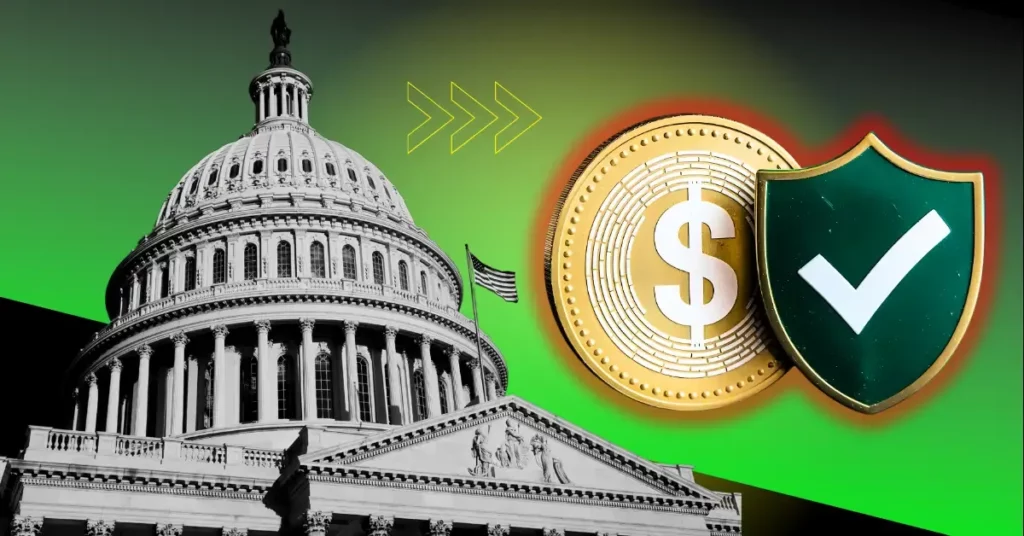
Stablecoin Regulation in the U.S. to be Decided by May 26 with GENIUS Act
A crucial decision regarding stablecoin regulation in the United States is expected to take place before the Memorial Day break on May 26, as informed by Senate Majority Leader John Thune to Republican lawmakers. This announcement comes amidst a growing concern around the lack of clear regulations governing stablecoins, which have been gaining popularity for fast and low-cost payments.
As reported earlier, Senator Bill Hagerty introduced the GENIUS Act in February, which has since passed through the Senate Banking Committee in March. The act aims to regulate the issuance of stablecoins by enforcing strict guidelines on their creation, reserves, and audits. Under this legislation, any stablecoin issuer would need to be a licensed entity, referred to as a “permitted payment stablecoin issuer.”
The GENIUS Act is designed to bring much-needed clarity and structure to the growing stablecoin market. As a complementary measure, the STABLE Act has been introduced in the Republican-controlled House. The two bills aim to establish clear regulatory guidelines for the issuance of dollar-pegged stablecoins – cryptocurrencies intended to maintain a stable value by being backed by real-world assets.
The absence of regulations has led to concerns about safety and trust surrounding stablecoins. The GENIUS Act addresses these concerns by mandating that stablecoin issuers hold full reserves, comply with anti-money-laundering regulations, and undergo regular audits. Furthermore, the act clarifies that stablecoins are not classified as securities or commodities, resolving a crucial point of confusion.
The primary objective of this legislation is to promote safer growth for stablecoins, potentially positioning them as competitors to traditional payment systems in the future. The GENIUS Act has been widely discussed within the cryptocurrency community, with some critics questioning the potential impact on innovation and job creation.
In light of President Trump’s executive order issued in January, which formed a working group to explore stablecoin regulations and investigate the possibility of creating a national crypto stockpile, the timing of this development raises concerns about potential conflicts of interest. Critics argue that Trump’s influence, combined with his financial ties to World Liberty Financial, a crypto firm backed by his family, creates an unfair advantage for certain parties.
The impending vote on the GENIUS Act will significantly impact the trajectory of stablecoin regulation in the United States.
Source: https://coinpedia.org/news/stablecoin-regulation-in-the-u-s-moves-forward-with-genius-act-approval/


